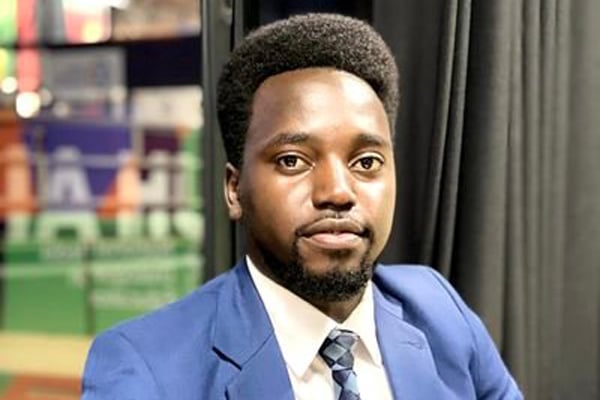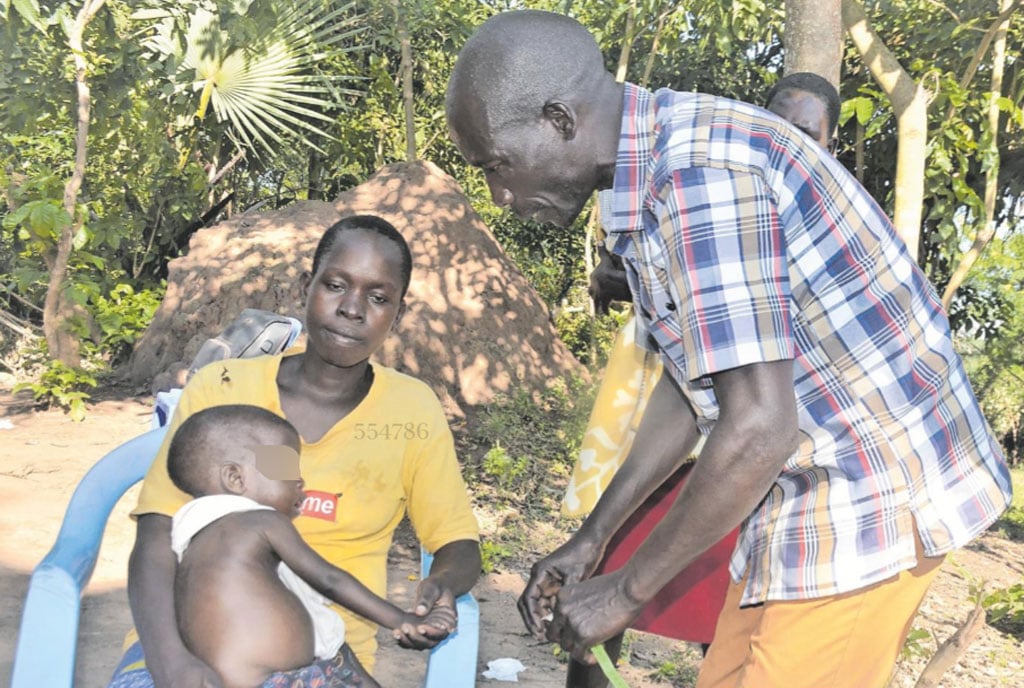
Rev Fr Damian Grimes
In the two decades since leaving Uganda, Rev Fr Damian Grimes, the legendary head teacher of Namasagali College, often found joy in reflecting on his impact.
On many occasions, especially during his birthdays, Fr Grimes would sit back and listen with contentment as former students, both in person and online, shared stories of how he shaped their lives and elevated Namasagali to its peak during his tenure.
These heartfelt tributes were a testament to the lasting mark he left on his students and the school. One might say he passed away a fulfilled man; yet there is a bittersweet side to his legacy.
The once-renowned Namasagali College, synonymous with his name, has since faded into history. If one could glimpse into Fr Grimes’ final thoughts, it’s likely his deepest wish was to see the school he so passionately nurtured rise again. It is no surprise, then, that he expressed a desire to be laid to rest at Namasagali, the place where his contributions were most deeply felt.
“I tried to do what I did to please God, and if you have found that helpful, it is God you should think of and thank, not me. It was my pleasure to have done this work,” Fr Grimes told a gathering of former students during his 92nd birthday celebration last year in the UK, as quoted by journalist Lillian Nalumansi.
The making
A Mill Hill Missionary priest, Fr Grimes was born on June 11, 1931, in Wakefield, North-East England, to John Grimes, a railway guard, and Mary Grimes (née Parkinson). He grew up in a small family with one brother and one sister. His early education took place at his local primary school, followed by partial secondary schooling at St Michael’s College, Leeds.
Feeling a strong calling to missionary priesthood, he pursued his education with the Mill Hill Missionaries, earning his Certificate in Secondary Education at Burn Hall, Durham (1947-1949).
He then studied Philosophy at the Missiehuis in Roosendaal, Holland (1949-1951), and went on to study Theology at St Joseph’s College, Mill Hill, London (1951-1955).
On May 5, 1954, Grimes took his Perpetual Oath in the Chapel of St Joseph’s College, where he was ordained a priest by Cardinal Bernard Griffin on July 10, 1955. Recognising his academic potential, Grimes's first assignment was to further his education.
He earned a Bachelor of Arts in History from the University of Glasgow in 1958, and later, a Postgraduate Diploma in Education from Jordanhill College, Glasgow.
Missionary work
In late 1959, Grimes was assigned to Uganda and joined the staff at Namilyango College, where he served for eight years. In 1967, he became headmaster at Kamuli College, which later became Namasagali College. It was there that Grimes truly dedicated himself, working for more than 30 years to elevate the school's standards in numerous ways.
Even during the challenging period of Idi Amin's presidency, Grimes ensured that the college continued to offer a well-rounded education. He motivated students to excel academically while also promoting extracurricular activities like boxing, drama, gymnastics, and chess with great enthusiasm and success.
Grimes played a pivotal role in founding the National Schools Chess Championship in the early 1980s, which initially took place at Namasagali College. This initiative was the brainchild of the British-born priest, and in recognition of his contributions, the competition was later named the Fr Grimes Chess Championship.
Today, this championship is the largest and most prestigious schools’ chess tournament in Uganda. While chess had been played in Uganda since the 1950s, it was Grimes’ dedication that fostered its grassroots development.
His annual inter-school chess tournaments, held during the first-term break in Kamuli District, gave young players invaluable opportunities to compete and improve their skills.
Before his time at Namasagali, Grimes had worked at Namilyango College, Uganda's first secondary school, where he is credited with launching the A-Level section. Always forward-thinking, Grimes also pioneered the introduction of computer studies in 1985 and oversaw the creation of Uganda's first school swimming pool, among other milestones.
His holistic approach to education extended beyond academics; he imparted life lessons as well, such as when he instructed Phil Kiboijana on the importance of making eye contact during conversations.
One notable incident occurred in 1984 when Tony Akaki, son of then-President Milton Obote, was involved in a disciplinary matter. Fr Grimes sent Akaki home with instructions to return with his father. Though some joke that the priest simply wanted to meet the president, Grimes emphasised that he was more interested in speaking to Akaki’s father than the nation's leader. Whether they met or not is a different story, but the incident underscored his belief in treating all students equally, regardless of their background.
Grimes's journey in Uganda was not without challenges. As a foreign missionary, he often faced doubt and resistance, particularly during times of political instability. In his memoir, he recalled returning to his home country only to be criticised by friends and family for choosing to return to Uganda, a country then considered unsafe for foreigners, after a brief holiday.
Grimes’ Namasagali
If the Mill Hill Fathers' missionary headquarters hadn't relocated from Nsambya, Kampala, to Jinja District, it is unlikely Grimes would have become associated with the college he’s known for today.
In his 2016 memoir, Uganda: My Mission, Grimes explains that this move, driven by religious politics, marked the beginning of his journey to establish the college. After serving under its first head teacher, Fr Neville, for about a year, Grimes assumed the leadership in 1967 and held the position for more than three decades until 2000.
Under Grimes’s leadership, Namasagali College evolved into more than just a school—it became a nurturing ground for Uganda's future leaders across various sectors. His vision extended beyond academics, focusing on shaping well-rounded individuals who could excel in life’s many challenges.
Grimes understood the importance of a balanced education, encouraging students to excel in entertainment, sports, the arts, and spiritual development. This well-rounded emphasis distinguished the college. One of his favourite sports, boxing, was introduced to students until he realised its violent nature hindered their confidence and communication skills. He quickly replaced boxing with acting, a decision that shaped the college's cultural identity.
Alongside dance, acting became the heartbeat of Namasagali's extracurricular activities, particularly in productions staged at Kampala’s National Theatre. From 1978 to around 1998, the college consistently held annual theatre productions, all written, adapted, and directed by Grimes with a creative team.
Alfred Geresom Musamali, an alumnus, recalls how Grimes set up a system where students managed their own discipline. They had leaders called Reeves who, using a detailed Penal Code, acted as judges and executed punishments. Grimes would personally attend these sessions every evening around 9:30pm, reinforcing the sense of accountability and leadership that defined the student body. This student governance structure became one of the school’s trademarks, teaching civic responsibility and leadership.
The renowned Namasagali College mirrored Fr Grimes' distinct and sometimes controversial ideas, according to Prof Wasswa Balunywa. Grimes blended contemporary Western values with local traditions to shape the school’s identity. He permitted girls to wear short dresses, which drew mixed reactions from parents, and introduced modern weekly dances, swimming, drama, and Western cuisine. He also taught etiquette and philosophy, subjects outside the typical curriculum, designed to make Namasagali students stand out, which they undoubtedly did.
His death
After a well-deserved home leave in 2000, Grimes briefly returned to the Kampala Archdiocese in Uganda. By February 2003, however, he was withdrawn from Uganda and transitioned to parish ministry in Llanrwst, north Wales, to be near his ailing sister.
Unfortunately, after nearly 13 years of dedicated service in Llanrwst, Grimes's declining health led him to retire in September 2016 to Herbert House, where he settled into retirement and completed his memoirs.
In the months leading up to his death, Grimes’s health worsened significantly. In July, he was moved to Abbotsbury Care Home in Southport to receive the best possible care. Sadly, Fr Grimes passed away at 10:30pm on Wednesday, closing a chapter of 70 years of devoted service as a Mill Hill Missionary.





